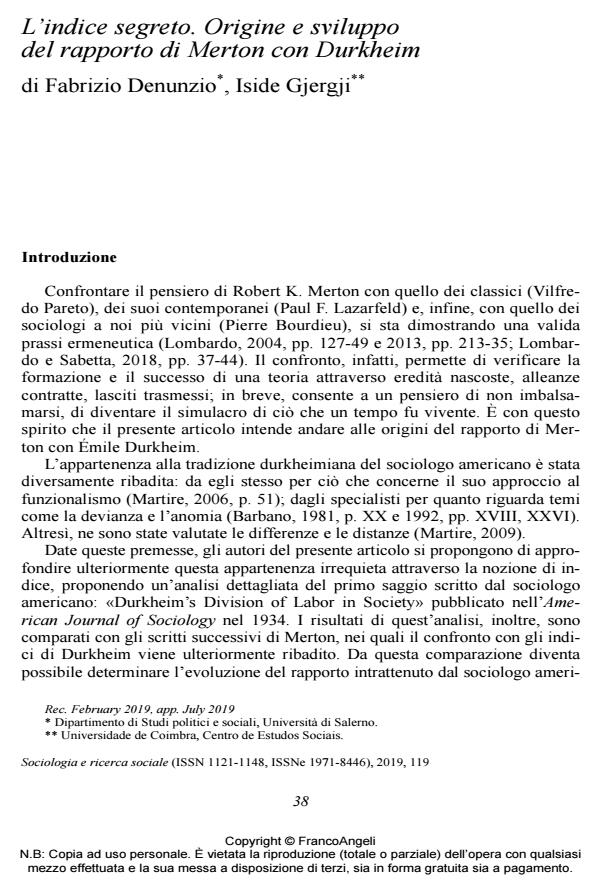The secret index. Origin and development of Merton’s relationship with Durkheim
Journal title SOCIOLOGIA E RICERCA SOCIALE
Author/s Fabrizio Denunzio, Iside Gjergji
Publishing Year 2019 Issue 2019/119
Language Italian Pages 15 P. 38-52 File size 186 KB
DOI 10.3280/SR2019-119002
DOI is like a bar code for intellectual property: to have more infomation
click here
Below, you can see the article first page
If you want to buy this article in PDF format, you can do it, following the instructions to buy download credits

FrancoAngeli is member of Publishers International Linking Association, Inc (PILA), a not-for-profit association which run the CrossRef service enabling links to and from online scholarly content.
This article provides an in-depth analysis of Robert K. Merton’s adherence to the durkheimian tradition through the concept of index. To do so, it provides a detailed analysis of the first essay written by the American sociologist: «Durkheim’s Division of Labor in Society» (1934). The results of this analysis are also compared with Merton’s subsequent writings, such as Sociological Theory (1945) and The Bearing of Empirical Research Upon the Development of Sociological Theory (1948), in which the confrontation with the Durkheim’s indexes is further reaffirmed. This comparison generates the possibility of identifying the evolution of the relationship that the American sociologist establishes with his French counterpart, as a fundamental tool of empirical research.
Fabrizio Denunzio, Iside Gjergji, L’indice segreto. Origine e sviluppo del rapporto di Merton con Durkheim in "SOCIOLOGIA E RICERCA SOCIALE " 119/2019, pp 38-52, DOI: 10.3280/SR2019-119002